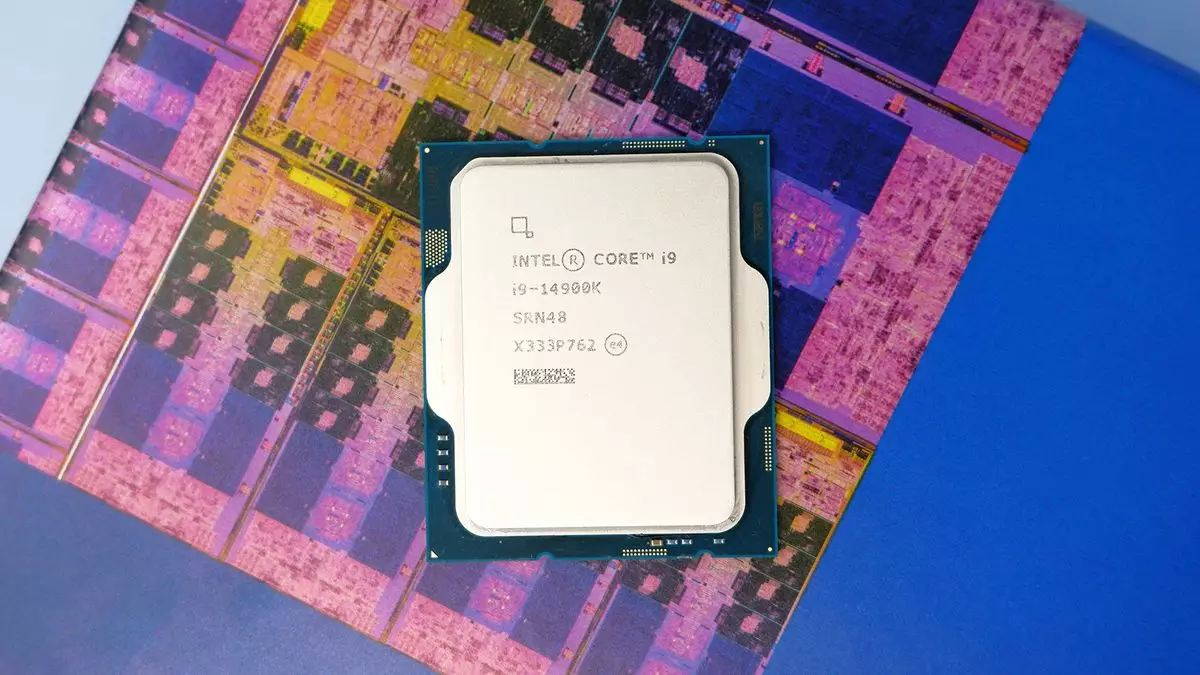Intel, known for its dominance in the CPU market, is now facing a contentious class action lawsuit that spotlights the issues surrounding its 13th and 14th Generation Raptor Lake processors. This legal battle, initiated by Mark Vanvalkenburgh from Orchard Park, New York, brings to the forefront significant concerns about product reliability, corporate accountability, and consumer trust.
At the crux of this lawsuit is Vanvalkenburgh’s experience with the Intel Core i7-13700K, which he purchased in January 2023. The lawsuit alleges that the CPU was not only defective but also plagued with stability issues, leading to frequent crashes. Significantly, despite applying Intel’s recommended microcode patch, the user continued to face the same problems, which raises serious questions about the effectiveness of the solutions provided by the company.
This situation becomes even more troubling when scrutinized alongside Intel’s own statements and historical context. The processor line in question—Raptor Lake—has been under fire for known stability issues that expedited the lawsuit. The fact that the plaintiff had to resort to legal measures illustrates a breakdown in communication and trust between customers and one of the industry’s giants.
Central to the lawsuit is the claim that Intel was aware of defects in its processors even prior to their release. According to the suit, Intel should have known about the problems through its rigorous pre-release and post-release testing protocols. Moreover, it is alleged that the company monitored various feedback channels, including user reports and return rates, which indicated a rising tide of issues with its products by late 2022. If proven, this information could imply willful negligence on the part of Intel, raising significant ethical and legal concerns.
The lawsuit claims that Intel had the opportunity to rectify these issues before the processors reached consumers but failed to act, leading to widespread dissatisfaction. Such an outcome would not be just damaging to consumer trust; it could result in substantial financial repercussions for Intel.
In the face of growing scrutiny, Intel has made attempts to address the concerns raised by users through microcode patches. Nevertheless, the company has conceded that once a CPU’s clock tree circuit is damaged—often due to voltage spikes—these patches will not remedy the fundamental issues, necessitating a full chip replacement. This acknowledgment raises further eyebrows: if Intel knows that its products may suffer irreversible damage yet continues to market them, it could face accusations of misleading consumers.
Furthermore, in response to the growing concerns, Intel has extended the warranties on its Raptor Lake chips and revised its Return Merchandise Authorization (RMA) process. These actions, while ostensibly beneficial for consumers, may also be viewed as an admission of guilt, suggesting that the company realizes the potential severity of the claims against it.
Clearly, the stakes are high, both for users affected by the stability issues and for Intel as a corporation. The lawsuit seeks various forms of damages, including punitive measures and restitution, which could lead to a costly legal battle for Intel. Given the company’s recent struggles, including its exit from the Dow Jones index, the timing of this lawsuit couldn’t be worse.
Intel’s next moves in this legal drama will be crucial. Will the tech giant opt for a protracted legal battle, which could tarnish its reputation further, or will it pursue a swift settlement to mitigate damage? The latter might be seen as conceding liability, while the former could drag out the negative publicity.
As the class action lawsuit against Intel unfolds, it highlights significant issues surrounding product reliability, the responsibility of corporations to their consumers, and the lengths users must go to in order to seek justice. The outcome of this case could set precedents that affect not only Intel but the broader tech industry as well. It serves as a stark reminder that while technological innovation drives progress, accountability remains an essential pillar in maintaining consumer trust and corporate credibility.

